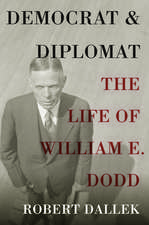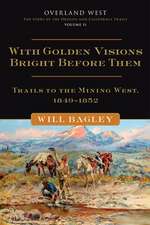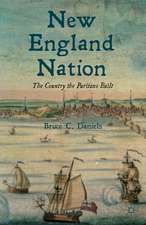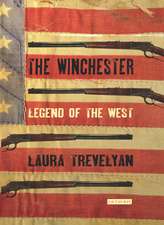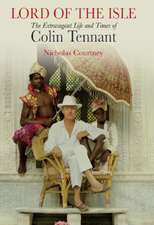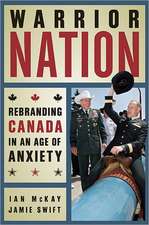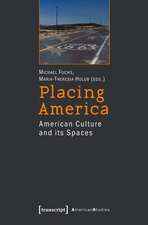Historians in Public: The Practice of American History, 1890-1970
Autor Ian Tyrrellen Limba Engleză Paperback – 10 noi 2005
From lagging book sales and shrinking job prospects to concerns over the discipline's "narrowness," myriad factors have been cited by historians as evidence that their profession is in decline in America. Ian Tyrrell's Historians in Public shows that this perceived threat to history is recurrent, exaggerated, and often misunderstood. In fact, history has adapted to and influenced the American public more than people—and often historians—realize.
Tyrrell's elegant history of the practice of American history traces debates, beginning shortly after the profession's emergence in American academia, about history's role in school curricula. He also examines the use of historians in and by the government and whether historians should utilize mass media such as film and radio to influence the general public. As Historians in Public shows, the utility of history is a distinctive theme throughout the history of the discipline, as is the attempt to be responsive to public issues among pressure groups.
A superb examination of the practice of American history since the turn of the century, Historians in Public uncovers the often tangled ways history-makers make history-both as artisans and as actors.
Tyrrell's elegant history of the practice of American history traces debates, beginning shortly after the profession's emergence in American academia, about history's role in school curricula. He also examines the use of historians in and by the government and whether historians should utilize mass media such as film and radio to influence the general public. As Historians in Public shows, the utility of history is a distinctive theme throughout the history of the discipline, as is the attempt to be responsive to public issues among pressure groups.
A superb examination of the practice of American history since the turn of the century, Historians in Public uncovers the often tangled ways history-makers make history-both as artisans and as actors.
Preț: 216.13 lei
Nou
Puncte Express: 324
Preț estimativ în valută:
41.36€ • 44.22$ • 34.48£
41.36€ • 44.22$ • 34.48£
Carte disponibilă
Livrare economică 28 martie-11 aprilie
Livrare express 13-19 martie pentru 28.64 lei
Preluare comenzi: 021 569.72.76
Specificații
ISBN-13: 9780226821948
ISBN-10: 0226821943
Pagini: 312
Dimensiuni: 152 x 229 x 36 mm
Greutate: 0.49 kg
Ediția:New.
Editura: University of Chicago Press
Colecția University of Chicago Press
ISBN-10: 0226821943
Pagini: 312
Dimensiuni: 152 x 229 x 36 mm
Greutate: 0.49 kg
Ediția:New.
Editura: University of Chicago Press
Colecția University of Chicago Press
Notă biografică
Ian Tyrrell is professor in the School of History at the University of New South Wales in Sydney, Australia. He is the author of five previous books, including Sobering Up: From Temperance to Prohibition in Antebellum America.
Cuprins
Acknowledgments
List of Abbreviations
Prologue: Finding History in a Queue
Part 1 - The Broken Mirror
1. What's Wrong with History? The Contemporary Context
2. The Great Jeremiad: The History of Historical Specialization
Part 2 - Historians and the Masses, 1890-1960
3. Searching for the General Reader: Professional Historians, Amateurs, and Nonacademic Audiences, 1890-1939
4. The Crusade against Pedantry and Its Aftermath: Allan Nevins and Friends, 1930s-1950s
5. Movies Made History and History Made Movies
6. Radio Days: How the American Historical Association Sought to Meet a Mass Culture
Part 3 - The Problem of the Schools
7. Contesting the Retreat from the Schools: Progressives and Teachers before World War II
8. The Patriots' Call: American History and the School Curriculum in War and Peace
Part 4 - Public Histories
9. Going Public: Public and Applied History, 1890-1930
10. History Making in the New Deal State
11. States of War: World War II, the Cold War, and Remaking History
12. The State, the Local, and the National: Connecting and Disconnecting with Public Audiences
Epilogue: The Forgotten: From the Fifties to the New Left and Beyond
Notes
Index
List of Abbreviations
Prologue: Finding History in a Queue
Part 1 - The Broken Mirror
1. What's Wrong with History? The Contemporary Context
2. The Great Jeremiad: The History of Historical Specialization
Part 2 - Historians and the Masses, 1890-1960
3. Searching for the General Reader: Professional Historians, Amateurs, and Nonacademic Audiences, 1890-1939
4. The Crusade against Pedantry and Its Aftermath: Allan Nevins and Friends, 1930s-1950s
5. Movies Made History and History Made Movies
6. Radio Days: How the American Historical Association Sought to Meet a Mass Culture
Part 3 - The Problem of the Schools
7. Contesting the Retreat from the Schools: Progressives and Teachers before World War II
8. The Patriots' Call: American History and the School Curriculum in War and Peace
Part 4 - Public Histories
9. Going Public: Public and Applied History, 1890-1930
10. History Making in the New Deal State
11. States of War: World War II, the Cold War, and Remaking History
12. The State, the Local, and the National: Connecting and Disconnecting with Public Audiences
Epilogue: The Forgotten: From the Fifties to the New Left and Beyond
Notes
Index
Recenzii
“Historians in Public will immediately become an indispensable record of the discipline and practice of history in the United States. By uncovering a vast range of early initiatives that historians undertook to deal with issues that included the very practice of scholarship, the appropriateness of utilizing new mass media opportunities, state funding and support, political ideology, and ‘the objectivity question,’ Ian Tyrrell has created a useful new history from which historians can think and act more creatively in the present.”--David Thelen, Indiana University
“To historians this book will be revelatory, and the larger American audience for history will be fascinated by this rich study of the profession’s activities devoted to reaching a larger public—the schools, the media, the government, museums, book clubs, the national park system, and more. By digging in the archives and long forgotten publications, Ian Tyrrell has gotten behind the screen of generational jeremiads to give us a fair-minded and enormously illuminating history of professional history’s place in American public life. It is an indispensable book. From now on, no one can speak with authority about the public side of the history profession or the humanities and social sciences professions more generally unless they have read this book.”--Thomas Bender, New York University
"Tyrrell's study of the intricate relationship between American professional historians and the public offers an important corrective to the litanies of declinism that perforate most contemporary surveys of American historians. . . . Tyrrell's elegant saga is a must-read for all aspitring and practicing historians of the American past."
"The jeremiad that Tyrell effectively undercuts has grown more insistent since 1970, especially that aspect of it that alleges political bias. With the debate about 'who we are as a nation' made more urgent by the war in Iraq, any attempt to bring Tyrell's story forward from 1970 will need to grapple frontally with the ideological dimension. That attempt will have sound footing, provided by Historians in Public."
"Tyrrell's book traces the arc of historical practice, historiographical fashion, and jeremiads about the decline of history . . . from Frederick Jackson Turner and John Franklin Jameson to the challenge of New Left historians. . . . His book deserves reflection and attention from all historians who ponder the profession's future as well as its past."
"In this painstaking account of American historians and their relationship to the public, Ian Tyrrell seeks to place current controversies about the teaching, writing, and wide understanding of American history in context. He succeeds admirably."
"Tyrrell's history is thoughtful and remarkably wide-ranging for an initial gambit into new territory. It immediately becomes an indispensable reference work, and the starting point for research on the public involvements of American historians."




